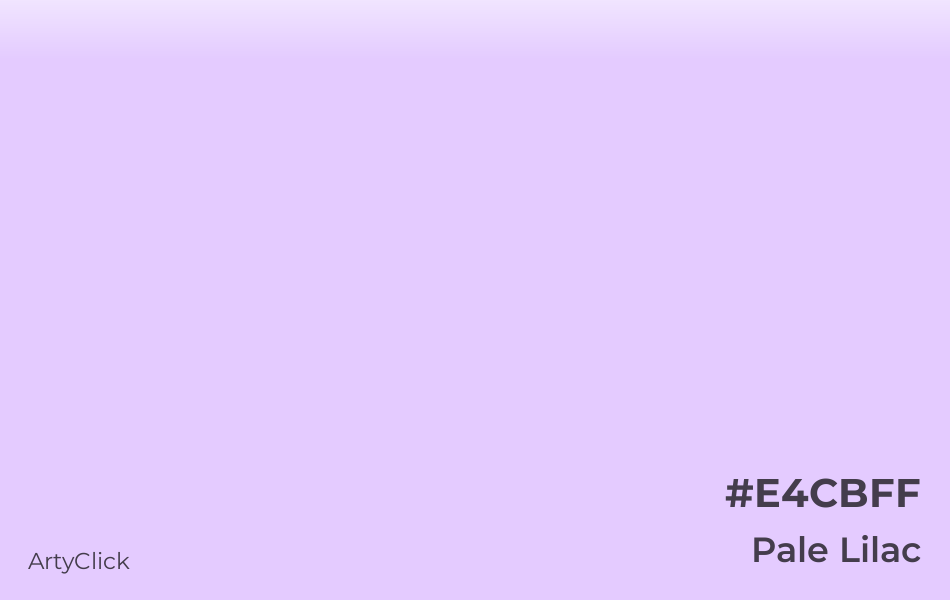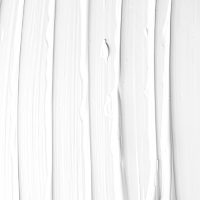Pale Lilac
#E4CBFF

Shades of Pale Lilac
What color is Pale Lilac
Pale Lilac is a light pastel shade of Purple. It belongs to the color family Pastel Purple, and it has high lightness and low saturation. Pale Lilac is a pastel color. Pale Lilac is a cool color.
What are the HEX, RGB, HSV, HSL and CMYK color codes of Pale Lilac
RGB space
CMYK space
The hex code for Pale Lilac is #E4CBFF.
In the RGB (Red, Green, Blue) color space, which is used for digital colors, Pale Lilac has 89%% Red, 80% Green, and 100% Blue.
Pale Lilac has 269° Hue, 20% Saturation, and 100% Value in the HSV (Hue, Saturation, Value) color space, which is another way to represent digital colors.
Pale Lilac has 269° Hue, 100% Saturation, and 90% Lightness in the HSL (Hue, Saturation, Lightness) color space, which is a different way to express digital colors.
Pale Lilac has 11% cyan, 20% magenta, 0% yellow, and 0% black in the CMYK (Cyan, Magenta, Yellow, Black) color space, which is used for color printing.
Color Space |
Original Units |
Percentage |
|---|---|---|
Hex |
#E4CBFF |
|
RGB |
(228, 203, 255) |
(89%, 80%, 100%) |
HSV |
(269°, 20, 100) |
(74%, 20%, 100%) |
HSL |
(269°, 100, 90) |
(74%, 100%, 90%) |
CMYK |
(11, 20, 0, 0) |
(11%, 20%, 0%, 0%) |
How does Pale Lilac contrast with black and white
The natural luminance of Pale Lilac is 66%, which is medium high.
Pale Lilac has a higher contrast with black than white.
Pale Lilac and black have a 14.3:1 contrast ratio, which meets the AAA requirement. These colors are suitable for text.
Pale Lilac and white have a 1.5:1 contrast ratio, which is insufficient for readability.
Luminance |
Contrast to Black |
Contrast to White |
|---|---|---|
66% |
AAA (14.3) |
insufficient (1.5) |
Example Black |
Example White |
Example Black |
Example White |
What colors go with Pale Lilac
How to mix Pale Lilac paint

To mix Pale Lilac paint using eight primary colors (Red, Green, Blue, Cyan, Magenta, Yellow, White, and Black), you'll need to combine 14% Blue, 6% Magenta, 80% White, as shown below.

Yellow
0%

Red
0%

Green
0%

Blue
14%

Cyan
0%

Magenta
6%

Black
0%

White
80%
To mix Pale Lilac paint using five primary colors (Cyan, Magenta, Yellow, White, and Black), you'll need to combine 7% Cyan, 13% Magenta, 80% White, as shown below.

Cyan
7%

Magenta
13%

Yellow
0%

Black
0%

White
80%
What colors are similar to Pale Lilac
Colors similar to Pale Lilac are: Light Lavender, Light Lilac, Pale Lavender, Moonraker, and Fog. Light Lavender is darker than Pale Lilac. Light Lilac is more magenta than Pale Lilac. Pale Lavender is more magenta and lighter than Pale Lilac. Moonraker is more blue and paler than Pale Lilac. Fog is more blue than Pale Lilac.